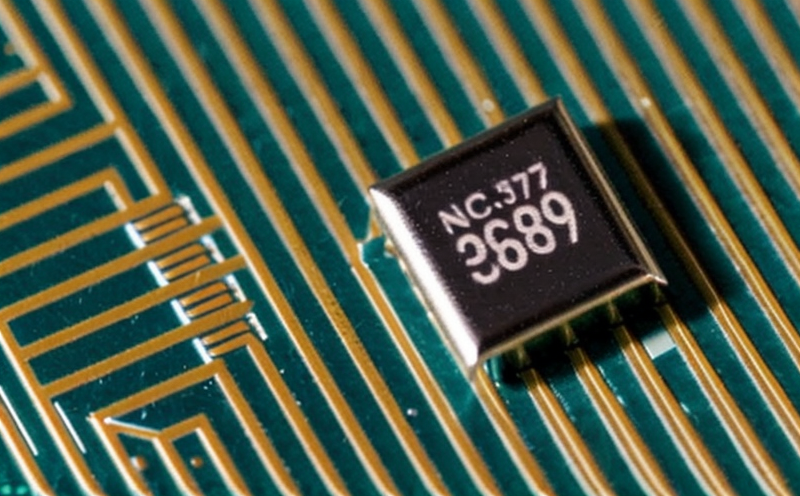ASTM D5470 Thermal Conductivity Reliability Testing
The ASTM D5470 thermal conductivity reliability testing is a critical process in ensuring the longevity and performance of semiconductor devices. This test evaluates how effectively heat can be conducted through microchips under various environmental conditions, which directly impacts their operational efficiency and durability.
Thermal management is crucial for semiconductor devices due to the high power density and increasing complexity within modern microchips. Poor thermal performance can lead to overheating, reduced reliability, shortened lifespan, and even catastrophic failures. ASTM D5470 addresses these challenges by providing a standardized method for measuring steady-state one-dimensional heat conduction through solid materials under controlled conditions.
The test involves subjecting the microchip specimen to different thermal gradients while monitoring its resistance to temperature changes. This helps in identifying any potential weaknesses or hotspots that could compromise the device's integrity over time. By adhering strictly to ASTM D5470, laboratories ensure that they are providing accurate and reliable data which can be used by engineers to make informed decisions about design improvements.
One of the key aspects of this testing is understanding how different materials and processes affect thermal conductivity. For instance, advancements in semiconductor technology often involve integrating new materials like carbon nanotubes or graphene into traditional silicon structures. These innovations aim at enhancing heat dissipation capabilities but also introduce variables that need careful assessment through ASTM D5470.
Another important factor is the role of environmental factors such as humidity, temperature fluctuations, and vibration stress on thermal performance. Real-world applications may subject microchips to harsh conditions not present in controlled lab settings. Therefore, ASTM D5470 provides a framework for simulating these real-life scenarios so that manufacturers can anticipate issues before they become critical problems.
From an industrial perspective, this type of testing plays a vital role in maintaining compliance with regulatory standards and industry best practices. It allows companies to demonstrate their commitment to quality control while also gaining competitive advantages by ensuring superior product performance. Additionally, it supports continuous improvement efforts aimed at developing more efficient and reliable semiconductor products.
- Ensures adherence to ASTM D5470 guidelines
- Maintains consistent test procedures across industries
- Facilitates better decision-making during design phases
- Promotes long-term reliability of microchip components





